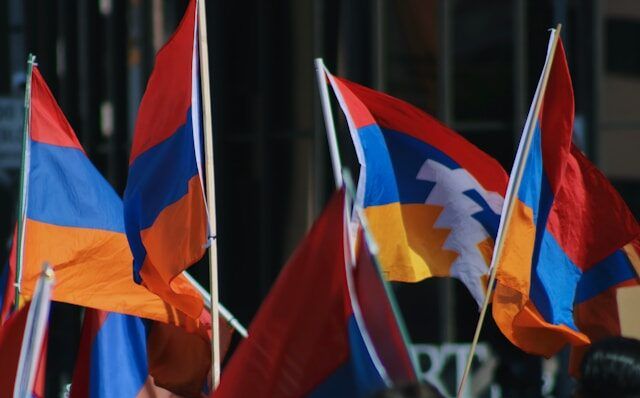At the UN’s top court, Armenia alleges Azerbaijan has eradicated the ethnic Armenian presence in the disputed Nagorno-Karabakh region.
Armenia has formally accused Azerbaijan of completing the ethnic cleansing of Nagorno-Karabakh, presenting its case to the International Court of Justice (ICJ). During the legal proceedings, Armenian representatives argued that Azerbaijan has systematically removed all traces of ethnic Armenians from the disputed territory, a claim that has escalated tensions between the two nations.
The conflict over Nagorno-Karabakh, a region with a significant ethnic Armenian population, has been a longstanding source of hostility between Armenia and Azerbaijan, with sporadic outbreaks of violence since the dissolution of the Soviet Union. The situation deteriorated in September when Azerbaijani forces took control of the region, leading to the displacement of tens of thousands of ethnic Armenians to Armenia.
Yeghishe Kirakosyan, representing Armenia at the ICJ, articulated the gravity of the situation. “Azerbaijan has not only occupied the region but is also erasing any evidence of Armenian heritage,” Kirakosyan stated. He described the actions taken by Azerbaijan as part of a deliberate strategy to eliminate the Armenian cultural and religious legacy in Nagorno-Karabakh.
This case at the ICJ, initiated by Armenia in 2021, accuses Azerbaijan of violating an anti-discrimination treaty by promoting racism against Armenians, glorifying hate speech, and destroying Armenian cultural sites. Azerbaijan has consistently denied these allegations, asserting its commitment to the rights and safety of all residents within its borders, regardless of ethnicity.
The legal battle comes in the wake of a 2020 conflict over Nagorno-Karabakh, which resulted in over 6,600 casualties. This was the most recent of three major conflicts over the territory, highlighting the enduring volatility in the region. In response to the humanitarian crisis, the ICJ issued emergency measures last November, demanding that Azerbaijan allow ethnic Armenians who fled the region to return safely.
However, the hearings currently underway at the ICJ are focused on jurisdictional issues, rather than the core allegations of discrimination. This procedural focus means a final judgment on the matter could still be years away. Moreover, the ICJ lacks the enforcement mechanisms to impose its rulings, complicating the potential for a resolution.
As the international community watches closely, the outcome of this legal challenge could have significant implications for international law and the future stability of the Caucasus region. Both nations have expressed a desire for peace, but with such deeply entrenched grievances, the path forward remains fraught with challenges.
